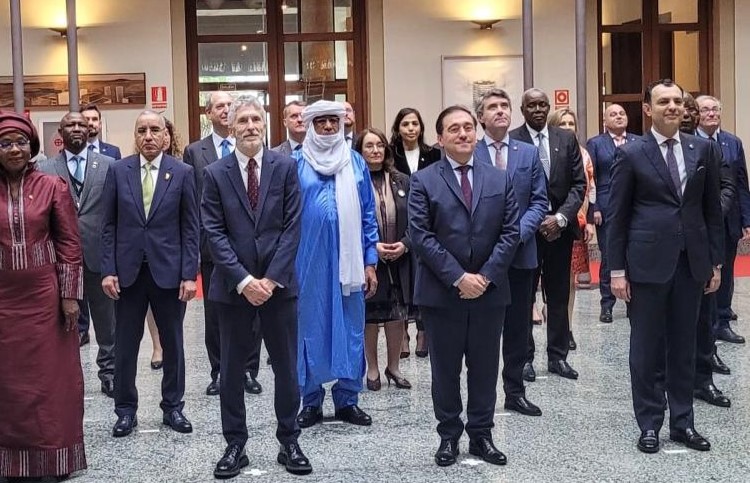The Diplomat
The Minister of Foreign Affairs, José Manuel Albares, inaugurated yesterday in Cadiz the sixth Ministerial Conference of the Rabat Process, in which he defended the “common objective” of Europe and Africa in favor of “an orderly, predictable and safe migration that respects the fundamental rights and dignity” of people.
“We have not chosen this city by chance,” Albares declared at the Palacio de Congresos de Cadiz during the opening day of the sixth Euro-African Dialogue on Migration and Development in the Framework of the Rabat Process, which will conclude today. “For centuries, Cadiz has been a crossroads and a meeting point between cultures, just like Spain: Cadiz looks from its coast to Africa, with a clearly European heart that beats to the African rhythm. And that is the main basis of the Rabat Process since its launching,” he continued.
According to Albares, the world faces “very complex challenges” in an “increasingly convulsive international environment” and, since the Rabat Process was launched in 2006, there has been “a steady increase in migratory flows” between Europe and Africa. “Greater complexity implies greater ambition,” but “it is not an easy task, because short-term challenges in migration are not realistic; it is a long-term task, a long-distance race in which we must all row, assuming our responsibilities” in order to “guarantee an orderly, predictable and safe migration” between Africa and Europe “that respects fundamental rights and dignity,” he said. “Spain always does so,” assured the head of Spanish diplomacy, who was accompanied by the Minister of the Interior, Fernando Grande-Marlaska.
For his part, the Moroccan Minister of Economic Inclusion, Small Business, Employment and Skills, Younes Sekkouri, highlighted the “exemplary cooperation between the north and the south” in migratory matters and assured that Morocco has gone from being a country of origin or transit of migrants to become a country “of destination”. Precisely, Spain will hand over the presidency of the Rabat Process to Morocco today. In this sense, Sekkouri undertook, on behalf of his country, to “continue the efforts made by Spain to give this forum the necessary impetus to find a space for understanding”.
The Cadiz Plan
The Rabat Process was launched in 2006 with the aim, among others, of strengthening international political and police cooperation in border management. The Cadiz event brings together the Ministers of Foreign Affairs, Interior and Migration of the 57 member states of this forum (29 European and 28 African) and representatives of the European Commission and the Economic Community of West African States (ECOWAS).
The most important point of this meeting was the adoption of the Political Declaration and the Cadiz Action Plan, a multi-year cooperation program that sets the strategic objectives that will guide the activities of the Rabat Process and its partners during the period 2023-2027. The document builds on the Rabat Process’ previous multi-year strategic framework, the Marrakech Action Plan, adopted at the previous ministerial conference in 2018, and the Joint Valletta Action Plan (JVAP), which was adopted by the Rabat Process and Khartoum Process partners in 2018. However, the new plan modifies the previous ones to “prioritize” job creation through legal migration and to address climate change and the fight against migrant smuggling and human trafficking networks.
For that reason, the Plan proposes concrete actions (specifically, ten objectives and 29 actions) in five thematic areas: root causes of irregular migration and forced displacement, regular migration and mobility, protection and asylum, prevention and effective reduction of irregular migration – including the fight against smuggling of migrants and trafficking in human beings – and return, readmission and reintegration. “We cannot do it alone, we need cross-cutting collaboration to ensure coherence,” Albares warned.







